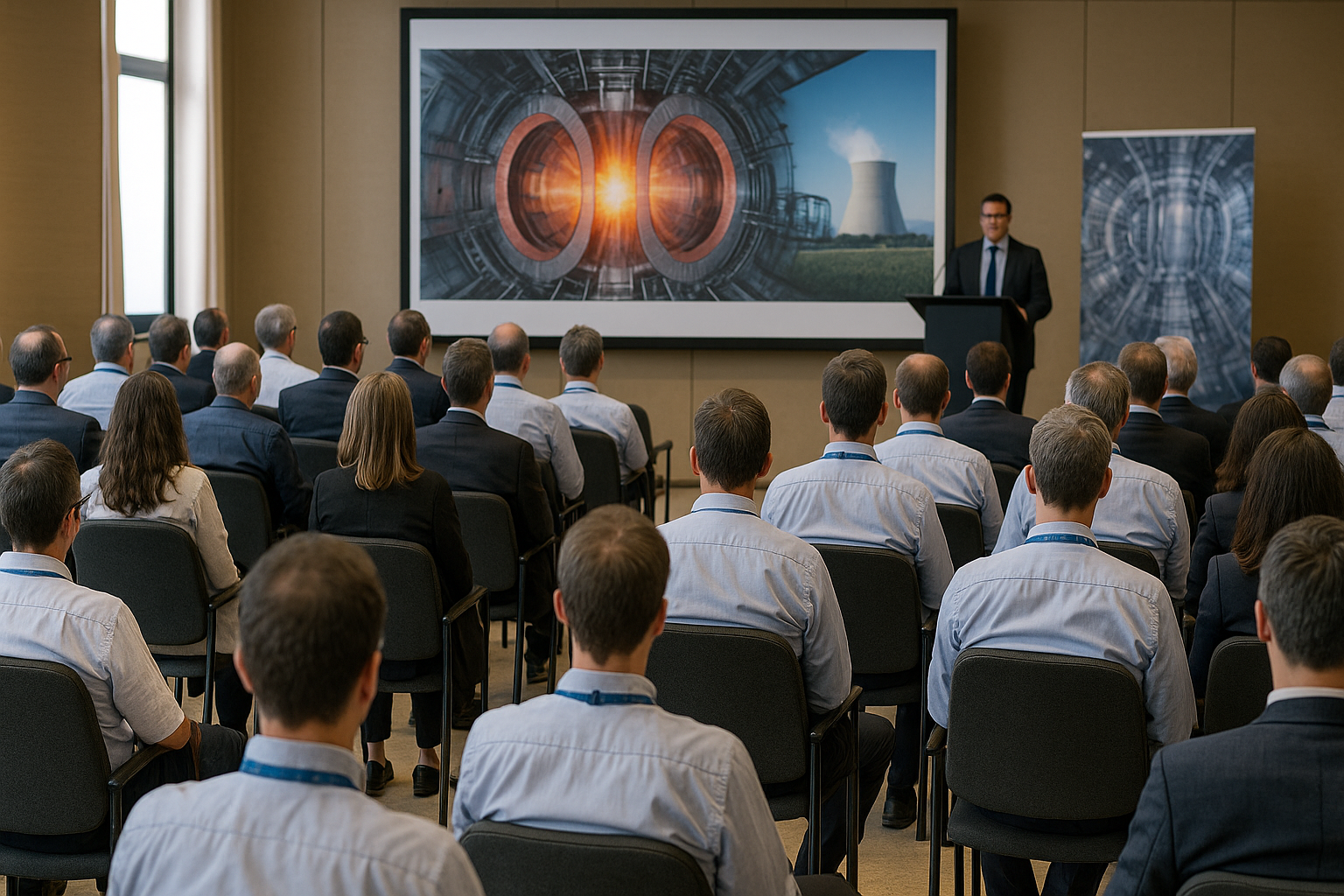IAEA Boosts Nuclear Energy Sustainability Through INPRO Workshop in Korea
The school marks the first of its kind hosted in South Korea, a nation with a strong nuclear infrastructure and a growing influence in global nuclear cooperation.

The International Atomic Energy Agency (IAEA) has taken a significant step in reinforcing global efforts to ensure the long-term sustainability of nuclear energy with a recent regional school on strategic nuclear energy planning, held in the Republic of Korea from 7 to 18 July 2025. This intensive two-week workshop, conducted under the IAEA’s International Project on Innovative Nuclear Reactors and Fuel Cycles (INPRO), gathered experts and practitioners from around the world to sharpen their skills in nuclear energy system planning.
The school marks the first of its kind hosted in South Korea, a nation with a strong nuclear infrastructure and a growing influence in global nuclear cooperation. Organized in collaboration with the Ministry of Science and ICT, the Korea Nuclear International Cooperation Foundation (KONICOF), and the University of Science and Technology – Korea Atomic Energy Research Institute (UST-KAERI), the workshop brought together 22 participants from 10 countries.
With the nuclear industry experiencing renewed momentum amid climate challenges and the global pursuit of decarbonization, the IAEA’s training initiative is timely. It aligns with growing demand from countries seeking to establish or expand nuclear energy systems that are resilient, safe, cost-effective, and sustainable over the long term.
Planning Nuclear Power for a Century or More
Nuclear energy projects are inherently long-term undertakings, often requiring 10 to 15 years of preparation and continuing commitments that stretch 100 years or more, including decommissioning and waste management. This complexity demands a methodical approach grounded in strategic planning and sustainability assessment.
“By developing necessary competencies and practical skills, the participants are now better equipped to support the development of more resilient and long-term national strategies for sustainable nuclear energy,” said Carolynn Scherer, Head of the IAEA’s INPRO section.
Participants engaged in a series of lectures, field visits, and hands-on training sessions designed to build practical expertise in INPRO’s comprehensive sustainability framework. They explored tools like the Nuclear Energy System Assessment Economics Support Tool (NEST) and engaged with real-world case studies, applying learned methodologies to the assessment of national and regional nuclear energy strategies.
INPRO’s Comprehensive Assessment Methodology
Founded in 2000, INPRO supports its 46 Member States and the European Commission in planning and evaluating the sustainability of nuclear energy systems. The project focuses on four major areas:
-
Global Scenarios
-
Innovative Technology Development
-
Sustainability Assessment and Strategies
-
Dialogue and Outreach
Its holistic evaluation method spans six key topics: environment, safety, proliferation resistance, waste management, infrastructure, and economics. These components ensure that national nuclear programs are developed with balanced and forward-looking decision-making frameworks.
INPRO’s methodologies are particularly crucial for countries embarking on nuclear energy for the first time or seeking to upgrade and expand existing infrastructure. They guide governments in making informed, risk-aware choices about technology selection, financing, environmental impact, and stakeholder engagement.
South Korea’s Role in Fostering Global Nuclear Cooperation
South Korea, known for its advanced nuclear technology and robust policy frameworks, provided a high-value venue for the school. Participants visited state-of-the-art nuclear research and testing facilities, including:
-
KAERI Underground Research Tunnel – used for research into the geological disposal of high-level radioactive waste.
-
SMART Integration Test Loop – a testing ground for System-integrated Modular Advanced Reactor (SMART) technologies, a promising small modular reactor (SMR) design.
These visits offered participants a tangible connection to cutting-edge nuclear innovation while learning from Korea’s decades of experience in nuclear energy deployment and international collaboration.
“We hope this school will serve as a key hub within the INPRO network,” said Jun Ho Shin, President of KONICOF. “In particular, we aim to distinguish the Korean programme by sharing our technical expertise through access to research and industrial sites.”
Global Voices Reflect on Training Value
Participants from diverse national agencies praised the school’s impact on their professional development and institutional capacity.
“The INPRO School on Strategic Planning provided an outstanding platform to deepen our understanding of long-term nuclear energy strategies and sustainability frameworks,” said Zareen Khan Bin Abdul Jalil Khan of the Malaysian Nuclear Agency.
“The theme of the school is highly relevant for countries like Uzbekistan that are in the process of developing their national nuclear power programmes,” added Maksudjon Khudoyberdiev of Uzbekistan’s Uzatom Atomic Energy Agency.
Looking Ahead: INPRO’s 25th Anniversary and Future Activities
INPRO has a dynamic agenda for the remainder of 2025. Key upcoming events include:
-
Joint ICTP–IAEA School on Strategic Nuclear Planning (September 2025)
-
INPRO’s 25th Anniversary Celebrations
-
Technical Coordination Meetings with Member States
-
25th INPRO Dialogue Forum in Nairobi (November 2025), focusing on nuclear development in embarking countries
These events reflect INPRO’s continuing mission to help countries make informed, future-oriented decisions about nuclear energy in the context of global energy transitions.
As the IAEA continues to promote peaceful and sustainable use of nuclear power, the recent school in Korea highlights how collaborative training and knowledge-sharing remain foundational to safe and successful nuclear development worldwide.
- READ MORE ON:
- IAEA
- INPRO
- nuclear energy planning
- South Korea
- clean energy
- strategic planning
- KAERI
- sustainable development
- SMR
- nuclear infrastructure
- global energy transition
- nuclear education
- nuclear reactor innovation
- NEST tool
- nuclear waste disposal
- small modular reactors
- energy security
- Asia nuclear cooperation










